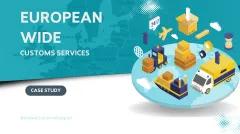AEO stands for Authorized Economic Operator. It is a concept that the EU established in 2008. The main goals are increasing international supply chain security and facilitating legitimate trade. It means that the company in question works in compliance with standards that are set out by the World Customs Organization. Authorised Economic Operators include, among others, manufacturers, importers, exporters, brokers, carriers, consolidators, intermediaries, ports, airports, terminal operators, integrated operators, warehouses and distributors.
Companies that want to become Authorized Economic Operators have to meet a wide range of criteria. They have to comply with customs legislation and taxation rules. They can’t have a criminal history related to their business. They need to keep appropriate records and be financially solvent. Their processes and documents are audited and approved by their local Customs Authority before becoming AEO Certified.
Different Levels of AEO Certification
AEO-Security: when a company is AEO S certified, it operates up to the highest standards for safety and security. Auditors look at both internal security processes and any audits that third parties like ISO have done. The benefits of an AEO S certification are:
- Less physical checks and fewer documentation checks
- Priority treatment in case of checks
- On request, the Customs Authority can do checks on specific locations
- Advance notification in case of checks
- Recognition of AEO certification by non-EU countries
AEO S is most used by logistics providers that offer transportation and storage.
AEO- Customs: AEO C certification is aimed at customs procedures. The benefits of an AEO C certification are:
- Less physical checks and fewer documentation checks
- Priority treatment in case of checks
- On request, the Customs Authority can do checks on specific locations
- Simplified customs procedures
- Advance notification in case of checks
- Re-use of research data in simplified procedures
- Lower collateral
AEO C is mainly used by customs agents who are not in physiscal possesion of the goods.
AEO-Full: an AEO F certification is the most elaborate AEO certification and combines AEO S and AEO C.
How to get AEO Certified?
Getting AEO certified takes a lot of time and effort. Getting AEO F certified takes six to twelve months. Whether you want AEO S, C, or F, here are some factors that influence the speed of the process:
- The type of goods
- Your role in the supply chain
- Internal commitment
- Knowledge about and experience with customs related procedures
- Well documented processes
- Proper IT infrastructure
- Clear contract and SLA with third parties
- External certifications like ISO, ELA, etc.
Preparations Before Applying for AEO certification
Before applying for AEO certification, you must make sure your organisation meets the minimum requirements for an AEO Certification. You will not be able to get AEO certified if these requirements aren’t met at the start of the application process: customs and tax compliance, no economic offences committed, financial solvency or a financial guarantor.
There are several things you should take care of prior to the application process:
- Determine which AEO Certificate is needed: AEO C, S or F
- An EORI number
- Get all involved departments on board:
- Finance
- IT
- Operations (linked to customs)
- Customs Department
- External Partners
How Customs Support Can Help You Get Certified
Our highly experienced specialists can help you get AEO Certified, whether that’s AEO Safety, AEO Customs, or AEO Full. We can help you with specific steps or assist in the complete certification process. Steps in the process where we can help:
- Make an assessment of your current organisation and processes based on the AEO Self Assessment questionnaire.
- Assess your current processes and procedures and improve and enhance them if needed
- Create new customs processes and procedures
- Complete the AEO Self Assessment questionnaire.
- Apply for the AEO Certification
Once submitted, the application is assessed and reviewed by the Customs Authority. If everything is approved, you will receive your AEO Certification in up to 120 days from the moment the application is submitted.
If you have any questions about getting AEO Certified, if you need support with your application, or if you need support with an AEO audit, contact one of our specialists.













